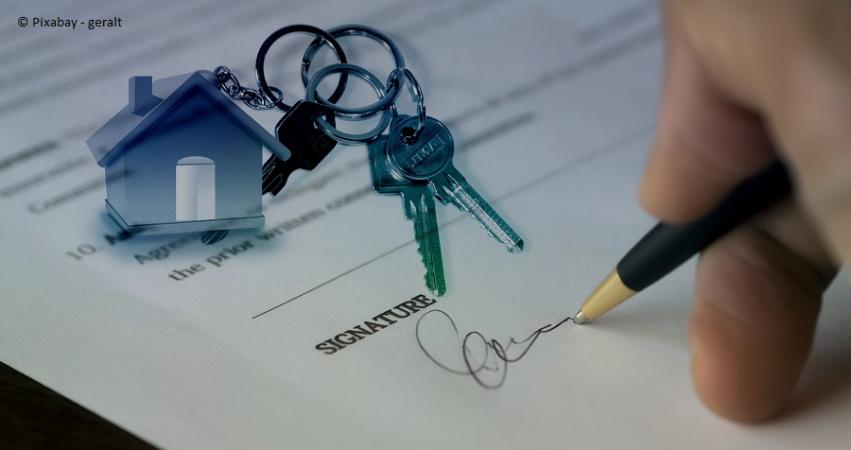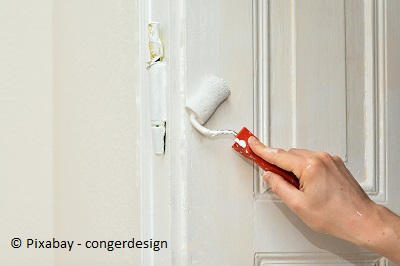
As every year, the summer months are the main time for PCSes. And while the permanent change of duty station is nerve wrecking enough, the dreadful turning over the keys on moving day is often completely overwhelming.
We have all heard the horror stories, the big fights over the return of the deposit or the ridiculously high utility bills. On top of that, time is running out, and there isn’t really any way to go out and meet with housing or lawyers.
This makes now the time to prepare and think ahead. It doesn’t really matter if you are new to the country and looking, if you have already found a home and are settled in for the next couple years or if you have a move coming up. Its never too late to start planning ahead.
One word of advice, if you are going through housing, ask to see the files, and ask if your potential landlord has had any complaints in his file. Housing will not disclose that info unless you ask.
In the best-case scenario, you did a proper walkthrough on move-in day, noting all damages and recording them on video or photos. Housing has walk-through forms that can be filled out and signed by both the renter and the landlord. It is also a good idea to have the contract translated and explained to you before signing it. Sometimes people try to sneak in clauses that are no longer legal.
 This is also a great time to look into German insurance. It is well worth it to compare rates and deductibles between German and American insurances, and it is often possible to save a bunch of cash by switching. To be on the safe side, a legal insurance or joining a renter’s association is a great idea. Having a lawyer by your side can be a lifesaver when the landlord is being difficult at the end of the lease.
This is also a great time to look into German insurance. It is well worth it to compare rates and deductibles between German and American insurances, and it is often possible to save a bunch of cash by switching. To be on the safe side, a legal insurance or joining a renter’s association is a great idea. Having a lawyer by your side can be a lifesaver when the landlord is being difficult at the end of the lease.
Once you have the contract signed, the walk-through papers and pictures tucked away and are set up with your insurance, its time to relax and enjoy your new home.
One thing you should keep in mind during your lease is to save all the utility bills. Make sure if your landlord does not automatically give them to you that you request them. Compare them with what you paid to see if you owe or may be getting some money back. If you end up owing money, ask to adjust your monthly utilities, so you are not hit with a huge bill at the end of the year.
The best way to prepare for the big move is plan ahead and give yourself plenty of time. While you may not have orders with a date yet, you should know about when you are expected to return. If you are due to PCS the coming year, start preparing at least six months ahead. If you had your rental contract translated and explained to you, then you know if you have to leave the house freshly painted or not. Now would also be the time to tackle any repairs that might be needed. While German law also considers wear and tear, they are quite different from the US wear and tear standards. While it is common to replace carpets in apartments after tenants back in the US, a carpet here is not considered worn out until its about 10 years old. Also stains like wine or burn holes are not considered normal wear and tear. To get started, do another walk-through. Note down things you see, that were damaged or could be iffy. You as the renter have the right, to do minor repairs and painting on your own.
Once you have jotted down what needs addressed, its time to come up with a game plan. Give yourself plenty of time to call about for estimates, for repairs. Don’t be afraid to call around and get more then one estimate either, the repair just has to restore things to be equivalent of what it was. Sometimes its cheaper to just replace a door, especially if it’s a cheap plywood door from a home improvement store, then having it fixed.
 If your place has to be painted at move out, plan in a couple days to do the painting yourself. Its much cheaper to by a couple buckets of paint and rollers then having to pay your landlord for a contractor to come in. Holes in the walls should also be patched up.
If your place has to be painted at move out, plan in a couple days to do the painting yourself. Its much cheaper to by a couple buckets of paint and rollers then having to pay your landlord for a contractor to come in. Holes in the walls should also be patched up.
If garden care is up to you, it’s a good idea to do some basic yard maintenance before you return the keys, renters are often surprised when they are presented with a huge bill for yard care after moving out. Again, its cheaper to do it yourself then paying your landlord to hire a company. Schedule the turn over, after you finished repairs and cleaning. You do not have to hire an expensive PCS cleaning team. A normal wipe down and mopping is sufficient. The only thing that may need some effort is the oven, but that is easily done with a regular oven cleaner too.
In case you are worried about your landlord acting up, try to schedule a turnover date and have a housing rep be there with you. If you are already involved with a lawyer regarding your landlord, it’s a good idea to have him present too. At the final walkthrough, have the move in sheet and photos ready. If there are things that still need repaired and you have not gotten around to getting an estimate, record them and take pictures. Once the walk through is done and the landlord signed off on the sheet, you are done with the hard part.
Now is the time most renters dread the most, if there is nothing to be fixed or no complaints, the bills are done and you don’t owe any utilities, you should get your move in deposit returned quickly. Usually there are still outstanding utility bills and they can take a couple month to come in. If there were still any damages, the landlord will be contacting you about fixing it. Be aware though, they can’t just keep your deposit. If there is money owed, the landlord has to give you an overview of what is outstanding. A list with estimated costs and outstanding bills works. If you feel like certain repairs and estimated bills are too expensive, you still have the option to get your own estimate, but complain right away and get it done. If something seems fishy, don’t be afraid to have a lawyer look over it.
Most repair bills are covered by your renter’s insurance, so be sure to submit your claim and get your money back. Your move in deposit should be returned to you within a couple weeks, but it can take up to 6 months.


Comments powered by CComment